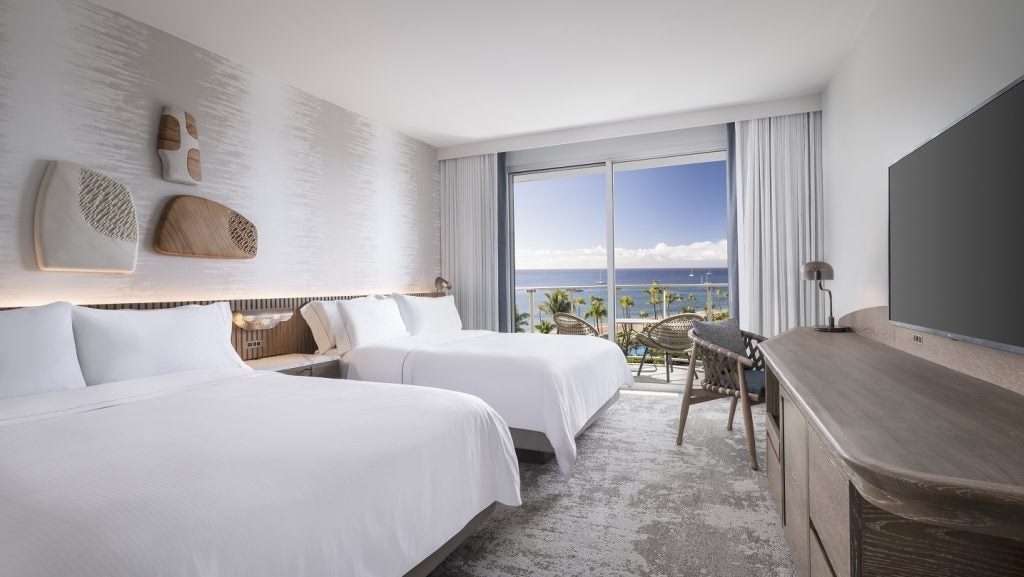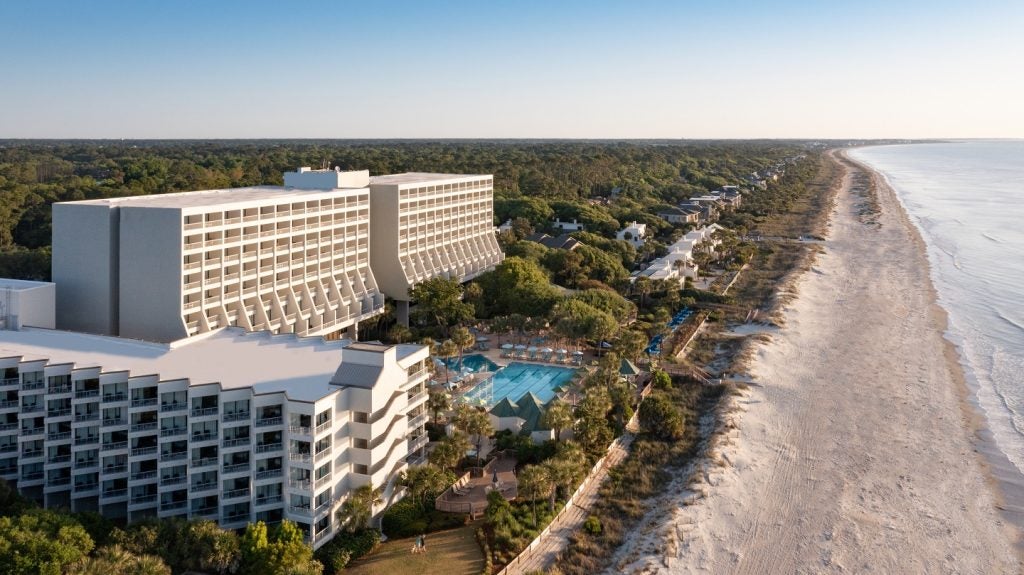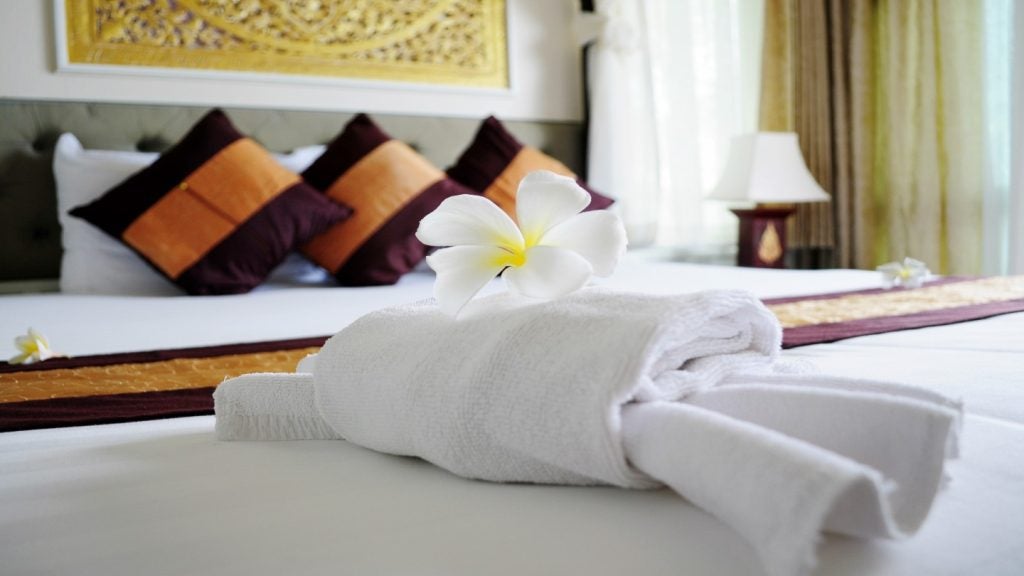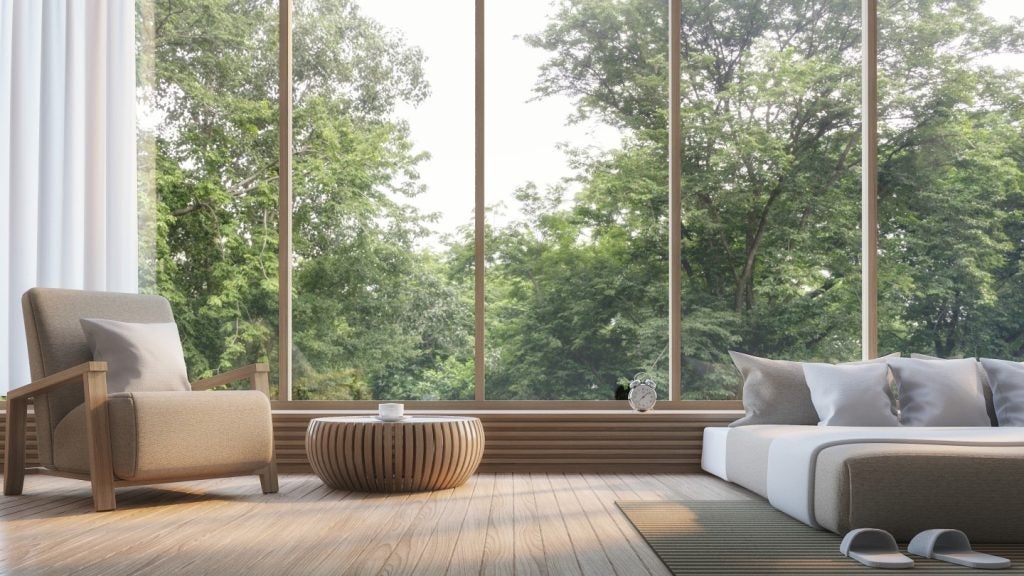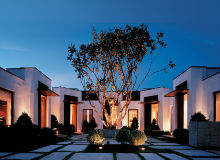
From Nickel to Gentlemen’s Tonic, the Refinery to the Grooming Lounge, male-only day spas are becoming an increasingly common sight in busy commercial districts. Not only have men cottoned on to the fact that a trip to the spa can offer them a competitive advantage in business; they’ve realised it makes them feel pretty good too.
Sales of men’s grooming products have soared in recent years, and, with the world market for these no-longer-niche items projected to exceed $33.2 billion by 2015, hotels’ health and wellness facilities are following the example set by the day spa industry in order to meet the demands of their rapidly growing and increasingly image-conscious male clientele.
"When I started in the spa industry many years ago, it was 95% women and 5% men, but there are many hotel spas which are now more like 50-50," says Susie Ellis, president of Spafinder. Indeed, according to Andrew Gibson, group director of spa at the Mandarin Oriental Hotels Group, the general mix across his organisation is now 52% female and 48% male.
"It’s a lot more accepted, there’s a lot more written about it, it’s talked about a lot more," Ellis notes. "That first hurdle of getting men to a spa is lower now that it used to be, and once they’re there, they’re usually hooked."
In September 2011, the Oriental Spa at the Landmark Mandarin Oriental in Hong Kong launched its first product line exclusively for men, a strategy that was wholly driven by market demand. "A total of 40% of our spa members are male and are regular treatment-goers," explains treatments manager Kathryn Cousins. "We wanted to present our guests with treatment and product offerings that we felt would best address their concerns."
See Also:
The recently-released Twinluxe line is made up of high-performance shaving skincare products as well as fine shaving instruments created by the designer behind the Rolls-Royce Phantom. "These products ultimately allow us to cater to the concerns felt by the male market in our urban environment," Cousins emphasises.
How well do you really know your competitors?
Access the most comprehensive Company Profiles on the market, powered by GlobalData. Save hours of research. Gain competitive edge.

Thank you!
Your download email will arrive shortly
Not ready to buy yet? Download a free sample
We are confident about the unique quality of our Company Profiles. However, we want you to make the most beneficial decision for your business, so we offer a free sample that you can download by submitting the below form
By GlobalDataWhat men want
Gaining an understanding of the modern male is absolutely key for hotels looking to stand out in the increasingly unisex spa sector, but this doesn’t necessarily mean a wholesale shift in their facilities’ business models. For Gibson, it’s about tweaking their offers to cater to men’s evolving expectations. "In my experience, spas are adapting their menu and products in a subtle way, rather than reorienting their business," he remarks.
"Hotels need to think about attracting men with much more neutral decor and by using male language on their menus," Ellis elaborates. "Men like simple, short, clear descriptions; using the same treatment for men and women but simply putting a male name on it is no longer working."
For Anne Biging, co-founder of Healing Hotels of the World, toughening up the terms used to describe certain treatments or even developing a separate menu specifically aimed at a spa’s male customer base is essential. "Men understand a different language to women," she says. "Women love softness, but men want results. Make sure the language is really results-orientated and focused on ROI."
Nowhere has the effectiveness of this approach been better demonstrated than at I.sawan Residential Spa & Club, at the Grand Hyatt Erawan, Bangkok, which was declared Men’s Spa of the Year at the AsiaSpa Awards in 2010.
"We offer facilities and services that are perfect for the man who is juggling a hectic personal and work schedule," spa director Jennifer Cikaluk says. "Our treatments are results-oriented and address both physical and mental goals. We aim to help men achieve quick results in a short period of time."
For hotels looking to replicate the experiences of their male clients by achieving rapid results in the now booming spa market, it is essential to appeal to the widest range of guests possible. Indeed, according to Mark Perkins, spa director at One Spa at the Sheraton Grand Hotel & Spa in Edinburgh, male-focused marketing materials have been absolutely crucial in boosting the facility’s male customer base.
"We have run a number of campaigns aimed strongly at male-orientated markets such as the Scottish Rugby Union and car dealerships like Aston Martin," he notes. "We’ve also found that educating men about the fact that One Spa has pools, thermal facilities and a gym, not just ‘beauty treatments’, has helped in breaking the association of spas being for females."
"’Pampering’ and ‘beauty’ are not right for men," Ellis agrees. "The word ‘grooming’ is being used more and this really works for the male market. The importance of grooming and looking good is really fuelling men going to spas because being well-presented offers men a competitive advantage."
Holistic health
Yet as the market develops and more image-conscious urbanites come round to the idea that a trip to the spa can leave them feeling as well as looking good, many are predicting a shift away from more traditional male grooming treatments.
"We’re seeing more and more men booking facials at the Oriental Spa," Cousins confirms. "Our guests have definitely become more experimental with their choices. Deep cleansing and detoxifying facials have grown in popularity now that the ‘woman only’ stigma has been removed. We’ve also found that men’s visits to the spa don’t have to be purely functional anymore, they can allow for a balance of both mind and body."
This also rings true at I.sawan Residential Spa & Club, where a growing number of men’s treatments are being designed to not only boost physical health, but also soothe the soul. "Busy lifestyles and balancing the stresses of travel and work led us to create treatments focused on relieving stress and muscle tension and rebalancing energy and vitality," Cikaluk explains. "They don’t only work physically on relieving muscle tension but also help to clear and energise the mind."
According to Biging, this idea of holistic health is the most significant trend affecting the spa industry. "The concept of having a well-being environment, rather than just a spa, is growing strongly and every hotelier who is looking to the future should be investing in this," she argues. "Men’s health and men’s well-being in particular is becoming a big thing."
Industry jargon has begun to evolve to reflect this. "We didn’t really talk about wellness at all five years ago," Ellis admits. "It was all about pampering and weight loss, but ‘wellness’ and ‘spa’ are almost interchangeable now and this has certainly brought more men into the spa setting."
Traditionally, fitness facilities have been managed by one organisation and the spa by another, but linking the two
is a potentially powerful means of encouraging gym-goers to make the leap from the running machine to the massage table. "They should no longer have a totally separate ambience and experience," Ellis believes. "Lots of men go to fitness clubs to work out and it’s another stepping stone into the spa."
The number of male spa users at One Spa has doubled in the past ten years, 60% of treatments at I.sawan Residential Spa & Club are currently booked by men, and an impressive 72% of guests at the Mandarin Oriental Kuala Lumpur’s spa are now male. The evidence is overwhelming; it’s becoming more acceptable for men to book into a spa. And as their tastes continue to develop, hotels need to be ready to cater for them. From tweaking treatment descriptions to manning-up marketing materials, there are countless subtle ways to help hotels’ health and wellness facilities appeal to a male customer base that is set to become ever more health and image-conscious.
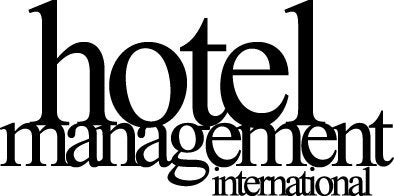
This article was first published in our sister publication Hotel Management International.



